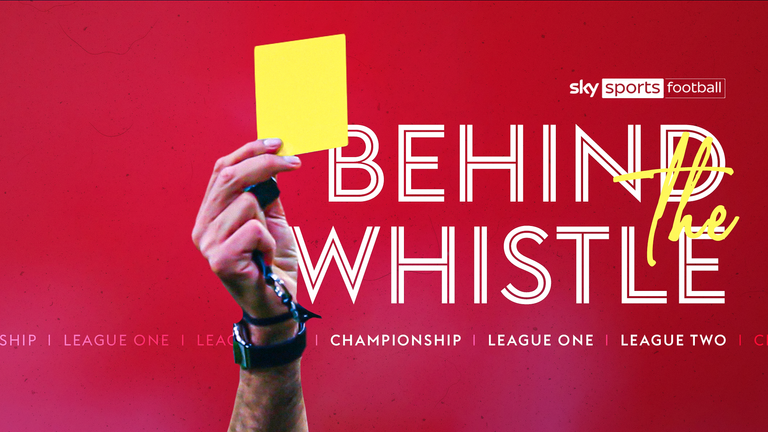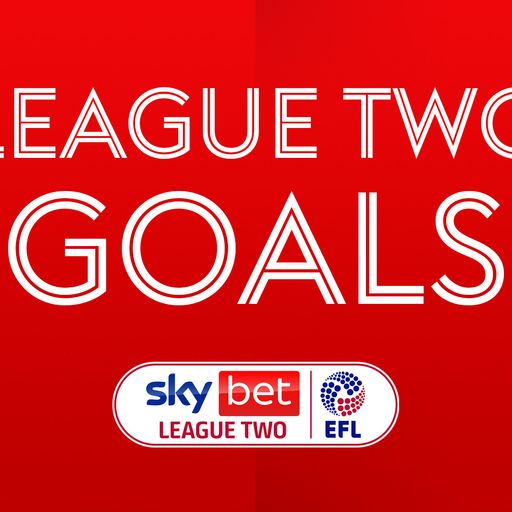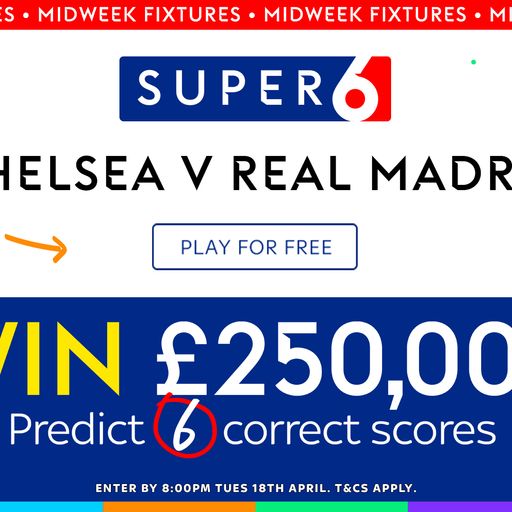Behind the Whistle: Chris Foy explains latest EFL decisions including Norwich, Sheffield United and Coventry calls
Former Premier League referee Chris Foy examines decisions from the Championship and also in League One games between Accrington and Fleetwood and Oxford and Bolton; plus calls in League Two matches with Crawley and Tranmere, and Gillingham and Stockport
Tuesday 18 April 2023 12:37, UK
In Behind the Whistle, former Premier League referee Chris Foy goes through a selection of key match decisions from the latest Sky Bet Championship, League One and League Two action.
Although many decisions made on the pitch are of a subjective nature, Behind the Whistle aims to give supporters of EFL clubs an insight into the decision-making considerations and also clarification of certain calls to provide an understanding of how the laws of the game are interpreted.
As part of a regular feature on Sky Sports following the conclusion of a matchday, Foy will be here to run you through some refereeing matters in the EFL, starting with the below.
Sky Bet Championship
Middlesbrough 5-1 Norwich City
Incident: Potential penalty (Norwich City)
Decision: No penalty awarded (Norwich City)
Foy says: I think this is a challenge that should have resulted in a penalty kick being awarded for the away side as, with the benefit of the replay, it is a careless trip.
From the referee's perspective, the real-time impression of an exaggerated fall means that the level of certainty required to award a penalty was not met, however after watching the incident back, I don't believe there would be any complaints if the penalty had been given for the contact made by the left foot of the defender on the attacker's left shin.
QPR 0-3 Coventry City
Incident: Goal scored - Potential offside (Coventry City)
Decision: Goal awarded (Coventry City)
Foy says: This key judgement arises from the long ball played over the top of the QPR defence. The attacker has remained in their own half and timed their run perfectly, which has also been perfectly judged by the assistant referee, who doesn't raise his flag.
In what was an important moment in the fixture, with the scoreline 1-0 at the time, the assistant referee judged this incident correctly.
Sheffield United 4-1 Cardiff City
Incident: Goal scored - Potential offside/handball (Sheffield United)
Decision: Goal awarded (Sheffield United)
Foy says: This is a complex decision with multiple factors at play in a crowded penalty area, and includes a potential offside decision and a potential handball by the attacking team.
First of all, following the incoming corner, the ball is headed by a Cardiff City defender, therefore while the Sheffield United No.8 is in an offside position, it was correct not to award the offside due to the ball being deliberately played by the defender.
The ball then makes contact with the arm of No.8 but given it is an accidental handball and the goal is scored by a different player, the officials were correct to award the goal. A difficult set of circumstances to judge in real-time, and a correct outcome, emphasising how good of a decision this was.
Sky Bet League One
Accrington Stanley 2-5 Fleetwood Town
Incident: Potential red card - Serious foul play (Accrington)
Decision: Red card awarded (Accrington)
Foy says: In this situation, the referee has to make a judgement whether this a reckless challenge, and a yellow card, or a serious foul play challenge and, therefore, a red card. In this particular incident, the referee has to judge whether the challenge is made with excessive force, endangering the safety of the opponent.
I would say the referee has made the correct call here when deciding whether the challenge is serious foul play. The speed at which the Accrington player approaches the challenge contributes to both the force and intensity of the contact, giving the referee little option but to award a red card.
Oxford United 0-1 Bolton Wanderers
Incident: Potential red card - DOGSO (Bolton Wanderers)
Decision: Yellow card awarded (Bolton Wanderers)
Foy says: I think in this particular incident, the Bolton Wanderers goalkeeper can feel quite fortunate to have only received a yellow card.
Once you leave the penalty area and commit to a challenge as a goalkeeper like this, and then don't win the ball, there is always a risk they could be 'in trouble' for denial of an obvious goalscoring opportunity (DOGSO).
In these circumstances, the referee has to judge whether the direction that the attacker is heading sufficiently mitigates a red card for DOGSO.
Whilst in real-time the referee considered that the attacker was heading away from goal, I think that had the foul not taken place the attacker would have controlled the ball and had a clear opportunity to score, therefore a red card should have been awarded on this occasion.
Sky Bet League Two
Crawley Town 2-1 Tranmere Rovers
Incident: Goal scored - Potential handball in the build-up (Tranmere Rovers)
Decision: Goal awarded - Advantage played (Tranmere Rovers)
Foy says: I feel this is a decision that we should highlight, given in a past column we have shown examples of times where an official was perhaps a little too quick on the whistle and advantage was not played.
In this incident, the Crawley Town goalkeeper clearly stumbles and in doing so handles the ball outside of the area. Whilst a handball offence has been committed, the best option was to allow the play to continue which is what the referee does - the advantage working well for Tranmere as they go on and score.
In a situation where the original offence was a denial of an obvious goal-scoring opportunity (and a red card), following the advantage the referee should show the player who committed the offence a yellow card.
Gillingham 1-1 Stockport County
Incident: Goal scored - Potential foul (Gillingham)
Decision: Goal disallowed - Foul given (Gillingham)
Foy says: I think in this situation the contact is more minimal and normal than a foul. Despite there being an amount of contact, it looks like the defending player has got under the ball and more likely misjudged the flight.
With the benefit of replays, I believe the best decision in this situation would be to award a goal.













